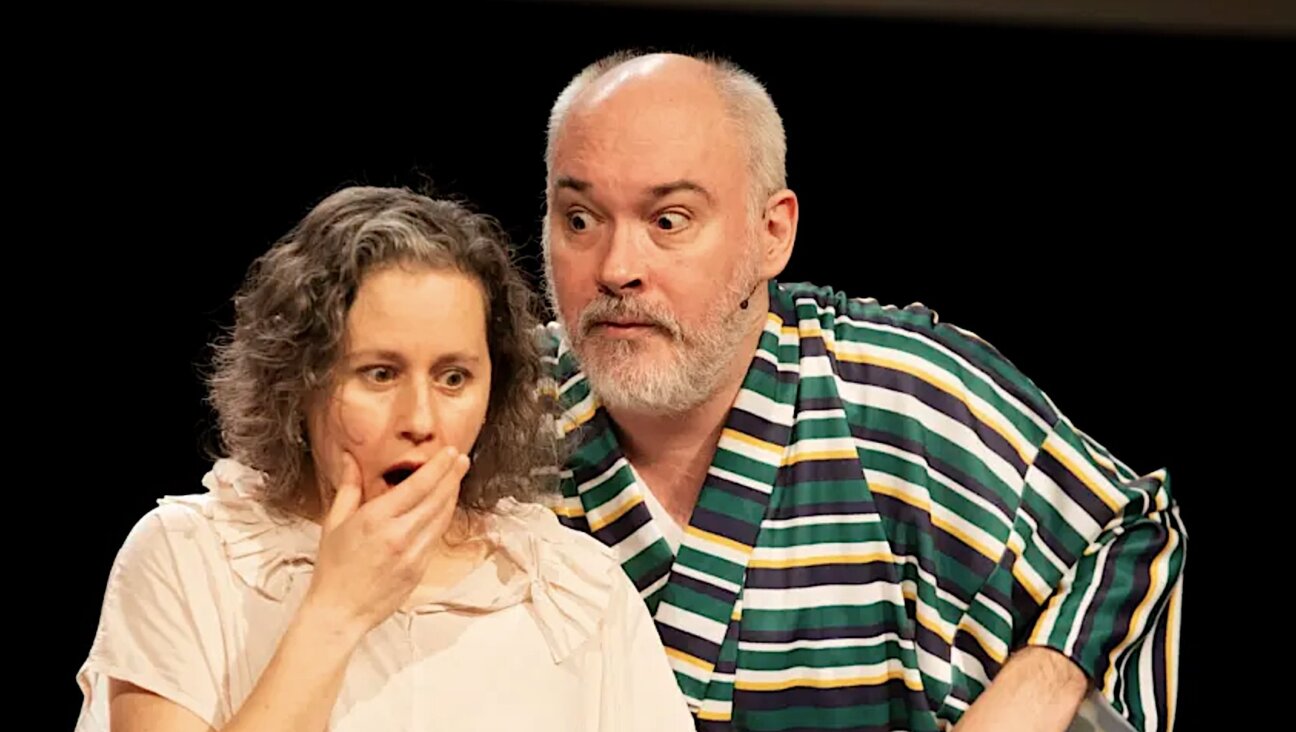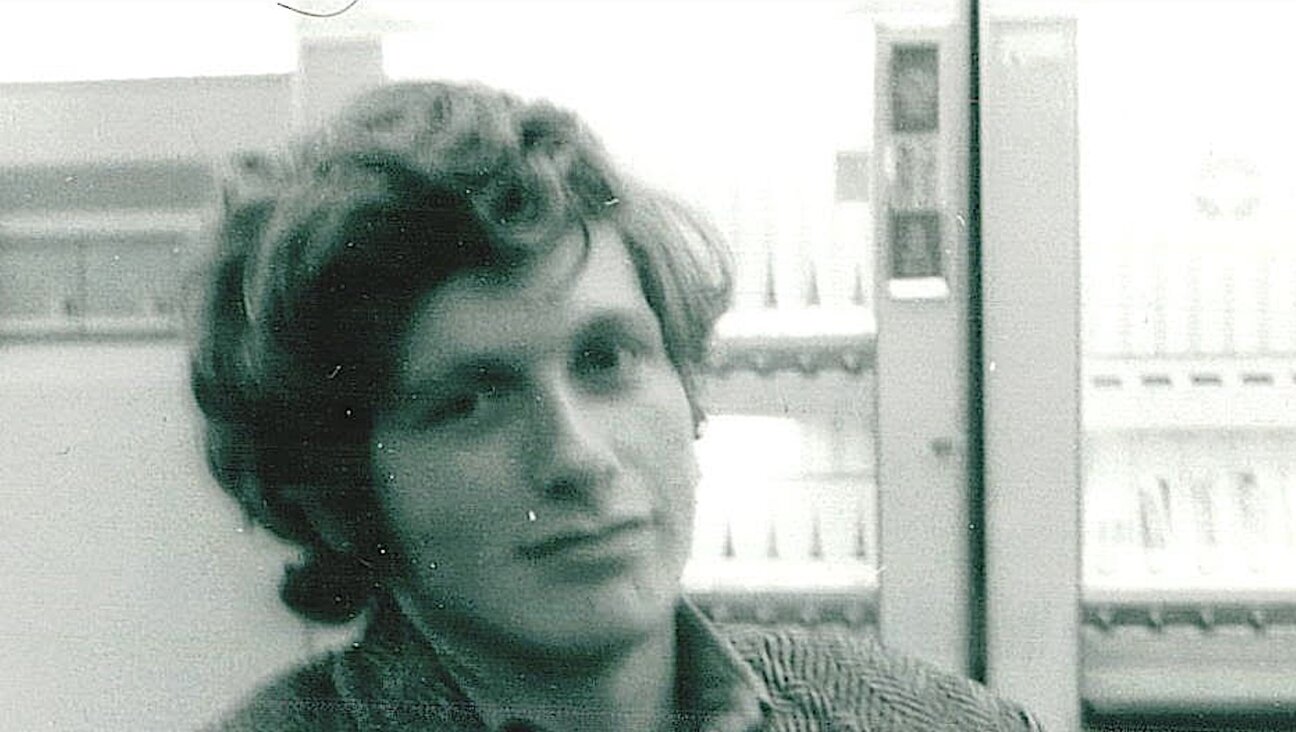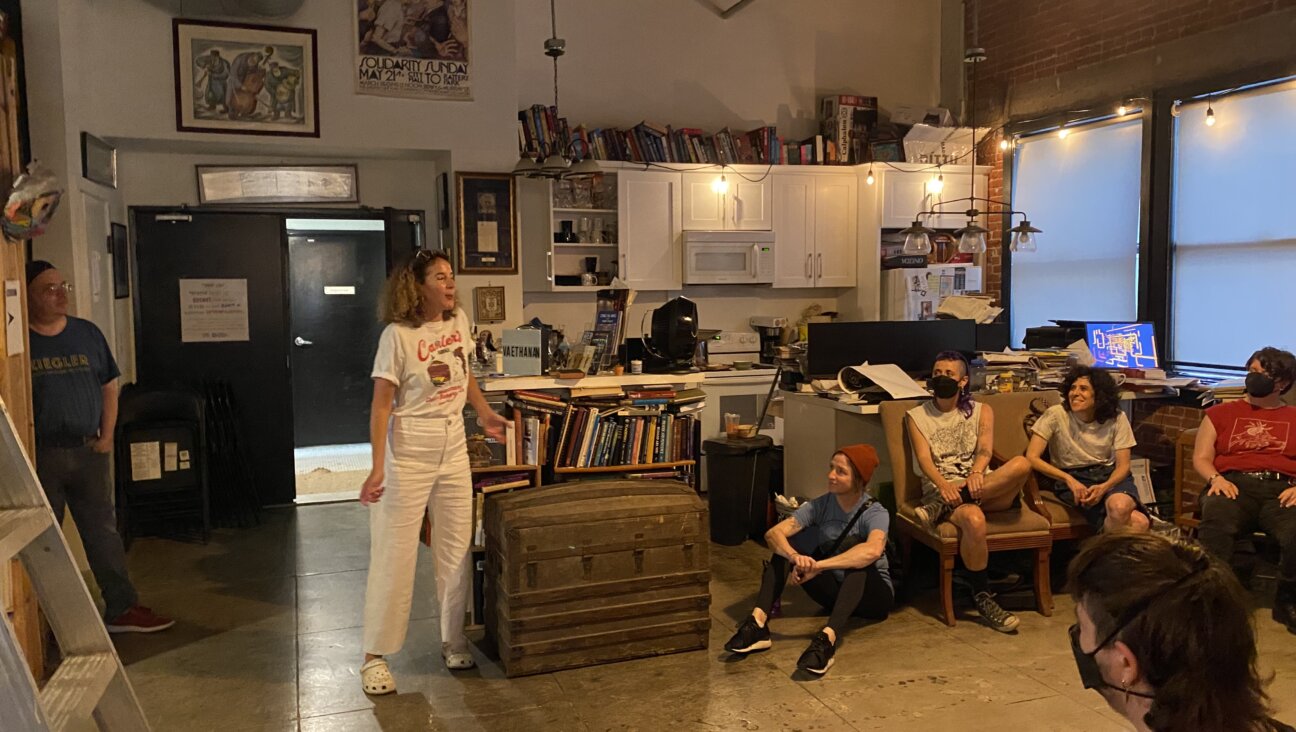Zoominar: What makes Yiddish humor so Jewish?

Yiddish comedians and experts on Yiddish comedy spoke with Rukhl Schaechter, editor of the Forverts, about their work during a Zoominar organized by the Forward on Monday.
Panelists Hy Wolfe, Michael Wex, Shane Baker, Allen Lewis Rickman and Yelena Shmulenson traded jokes and performed short monologues characteristic of Yiddish humor.
Wolfe, longtime Yiddish theater actor and president of the Hebrew Actor’s Union, performed Lee Tully’s classic patter song “I’m a Litvak and She’s a Galitz” and described his childhood in Brownsville, a Brooklyn neighborhood once home to a large community of Yiddish-speaking Holocaust survivors.
Wex, author of several books on Yiddish culture and humor, recounted growing up in a religious, Yiddish-speaking family in rural Alberta. To express the ethos of Yiddish humor, Wex quoted the Yiddish idiom “ikh lig in dr’erd un bak beygl.” Literally, the phrase translates to “I’m lying six feet under baking bagels,” but idiomatically, it means, “I’m doing awful.” Why would someone who is miserable describe himself as being dead and baking bagels? What, asked Wex, could be more futile and infuriating than baking bagels in hell, where one can neither eat nor sell them?
Baker, an Episcopalian-raised actor and comedian who runs the Yiddishist Congress for Jewish Culture, explored his background in an absurdist Yiddish-inflected monologue. Asked how he came to Yiddish, Baker noted that he first encountered the language in 1974, when a Marx Brothers film was re-released in his hometown of Kansas City and he asked his father what the word “shnorer” meant. His father told him the word was gibberish, but the young Shane wasn’t convinced. Baker noted that he later mastered the language after befriending the legendary Yiddish actresses Mina Bern and Luba Kadison and learning some of the great hits from their repertoire.
Allen Lewis Rickman and Yelena Shmulenson, the husband-and-wife duo known for their roles on both the Yiddish stage and in popular TV series, including Boardwalk Empire, performed a bilingual version of Michael Rosenberg’s monologue “Getsl at the Ball Game.” The monologue features a hapless immigrant who, upon learning of Yankee Stadium, believes a famous cantor named “Yankl” performs there. Getsl leaves a game at Yankee Stadium convinced that he has seen a bizarre and dreadful cantorial concert.
Several of the panelists then chimed in to explore the monologue’s characteristic Yiddish elements, including its poking fun at a Jew who can’t make sense of wider Gentile society.
Rickman attributed Yiddish humor’s frequent use of logic and riddles to “2,000 years in dank yeshivas learning Talmud.” As a classic example, he referenced the joke at the end of “Coming to America,” in which a customer chastises a waiter for forgetting his spoon by demanding that he “taste the soup.” Rickman and Wex noted that such logical situational humor has had a profound influence on American humor more broadly.
The panel concluded with a discussion of the future of Yiddish comedy. Rickman expressed his pessimism, noting, perhaps only half-jokingly, that millenials have no sense of humor and are too politically correct to enjoy Yiddish humor, which is “often not politically correct.” Wolfe, on the other hand, was more optimistic, noting that young people are learning Yiddish and studying old comedy routines.
A message from our Publisher & CEO Rachel Fishman Feddersen

I hope you appreciated this article. Before you go, I’d like to ask you to please support the Forward’s award-winning, nonprofit journalism during this critical time.
At a time when other newsrooms are closing or cutting back, the Forward has removed its paywall and invested additional resources to report on the ground from Israel and around the U.S. on the impact of the war, rising antisemitism and polarized discourse.
Readers like you make it all possible. Support our work by becoming a Forward Member and connect with our journalism and your community.
— Rachel Fishman Feddersen, Publisher and CEO
























